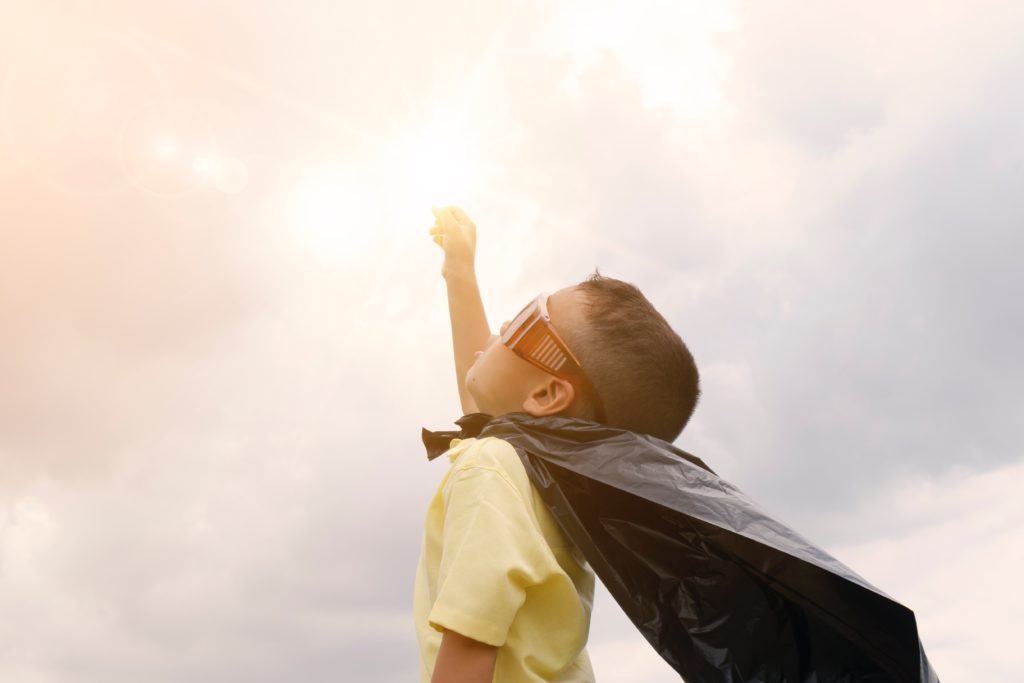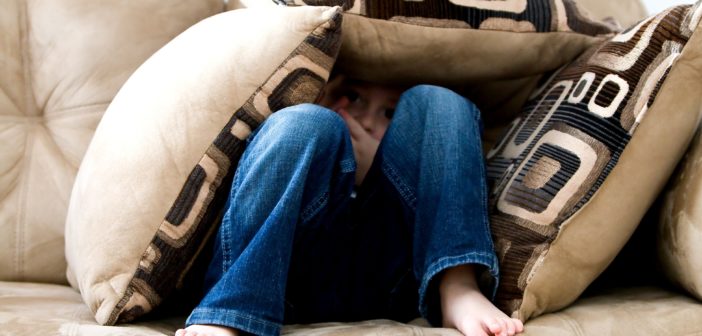Every child experiences fears at different stages. Fears often come about as a result of a particular incident or experience. After all, fear is a natural emotional response to a perceived threat and it only stands to reason that because children are more vulnerable, they have more things to be afraid of.
Our children have so much to learn about the world and how things work. They also have amazing imaginations that can sometimes run away on them when they don’t full understand things.
Fears aren’t just for younger children either, it is perfectly normal for primary school children and adolescents too.
Here are some common childhood fears:
- Darkness
- Shadows
- Being alone (particularly being separated from parents)
- Strangers
- Monsters, zombies, ghosts
- Bad dreams/nightmares
- Dogs or other animals
- Spiders and bugs
- Storms
- Heights
- Being hurt or dying
- Someone they love being hurt or dying
- Scary images from TV shows, news, movies or books
- Sudden loud noises
- Going down the plug hole
- Falling in the toilet or the sound of the flush
- Doctors, dentists, hospitals
- Needles
- Blood
- Crowds
- People in masks or costumes, including clowns.
- Getting in trouble by parents or teacher
- Public speaking
- Failure
- Rejection by peers

Dealing with childhood fears
A few tips to dealing with childhood fears include:
- Validate your child’s feelings. Whether the threat is real or not, the fear is. Let them talk about what they are afraid of so you are better equipped to help them. For example, “I understand you are scared of going to the doctor. What makes the doctor scary for you?”
- Never dismiss or make fun of your child’s fear, however frustrating. This will make the child feel like their fears are invalid or shameful and may prevent them from opening up to you in future.
- Read stories about fears or talk about your own childhood fears so your child knows that fears are normal. Child psychiatrist, Dr Kaylene Henderson has some downloadable stories fit for 2-5 year olds and primary school children who are afraid of monsters and the dark. You can find them here.
- Teach kids coping mechanisms to deal with their fears such as breathing exercises and relaxation techniques. Affirmations can also help, for example “I am safe” or “I can do this”.
- Don’t reinforce fears. This can be easy to do inadvertently. Playing along with a fear or purposefully avoiding a situation that your child is afraid of can affirm that fact that there is truly something to fear.
- Gradual exposure to the object of your child’s fear can help reduce desensitise them.
When fears go to far
Sometimes fears can turn into ongoing anxiety or even a phobia. A phobia is when a fear becomes extreme, persistent and irrational. Read about the signs and symptoms of anxiety here.
Both anxiety and phobias can impact daily function, in these cases your child may need support from a counsellor or psychologist to help overcome these issues.
There are also some good tips for dealing with anxiety here.

